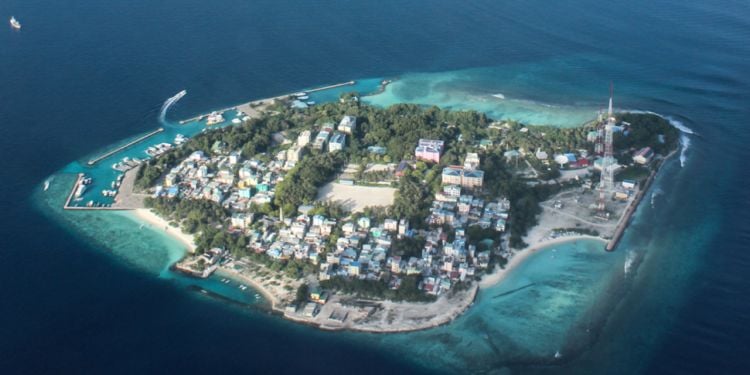
The Maldives are one of the worlds most popular beach vacation destinations. Boasting stunning natural landscapes and clean unspoilt beaches as well as a developed tourist infrastructure, the country is a great place to get away from it all. But is it possible to work in this paradise?
Yes. As a matter of fact, the country provides plenty of job opportunities in hospitality and the service sector. So, how to go about job hunting in one of the most beautiful destinations on earth? Find out in this article.
Economy
Once a major trading port, the Maldives of today are primarily driven by tourism, fishing, and international shipping.
Tourism is the main source of income for the Maldives accounting for over a quarter of the GDP. The country's picturesque turquoise beaches attract over 1.5 million tourists a year and create a favourable ground for the hospitality and F&B industry.
Fishing is the second largest industry contributing to about 10% of the GDP: only line fishing is allowed. The industrial sector mainly consists of shipbuilding companies and canneries and agriculture, though present, is heavily constrained by the lack of cultivable land
Labour market
The unemployment rate in the Maldives stands at about 5%. A large number of the population works in spheres related to tourism and hospitality industry ' this is also the sector where the majority of foreigners living in the Maldives is employed. About 20% of the local population is employed in the fishing industry while industry, banking and other sectors also provide job opportunities.
Conditions
Male has a very high cost of living compared to other countries in the area. With that, if you work in the hospitality industry, you won't have to worry about rent or food as these items are typically included in the contract and will be provided by your employer.
If your potential job lies in other spheres, it is best to inquire about which of your expenses (if any) will be covered.
The standard workweek is 48 hours, with Fridays and Saturdays being rest days. Note, however, that if you work in hospitality, work hours may be irregular or split into shifts.
Find a job
As mentioned above, most of the expat population in the country is involved in tourism. This means jobs in hospitality, F&B, fitness and recreation, and others.
Note that in order to work in the country, you will need to first secure a position and have your employer apply for Employment Approval for you, which you will then use enter the country and apply for a work permit and resident visa.
So, how to go about securing a position?
If you want to work in the hospitality industry, you could start by getting in touch with the resorts and hotels in the capital city or on the islands enquiring about openings and sending out your CV and cover letter. Consider getting a free CV review at TopCV.
Alternatively, you could browse through specialised job websites to see current offerings ' there are quite a few English language websites where you can read about available positions.
Prior experience in hospitality, as well as the command of a foreign language, would definitely be strong assets throughout your job hunt.
While most expats in the Maldives work in the area of hospitality and F&B, there are also opportunities available in other sectors like marketing, education (especially English teaching), finance, and others. With that said, these are few and far between and are definitely not as easy to acquire as jobs in the hospitality field.
Useful links:
Jobs in the Maldives
Hospitality jobs in the Maldives
Maldives immigration
We do our best to provide accurate and up to date information. However, if you have noticed any inaccuracies in this article, please let us know in the comments section below.







Comments